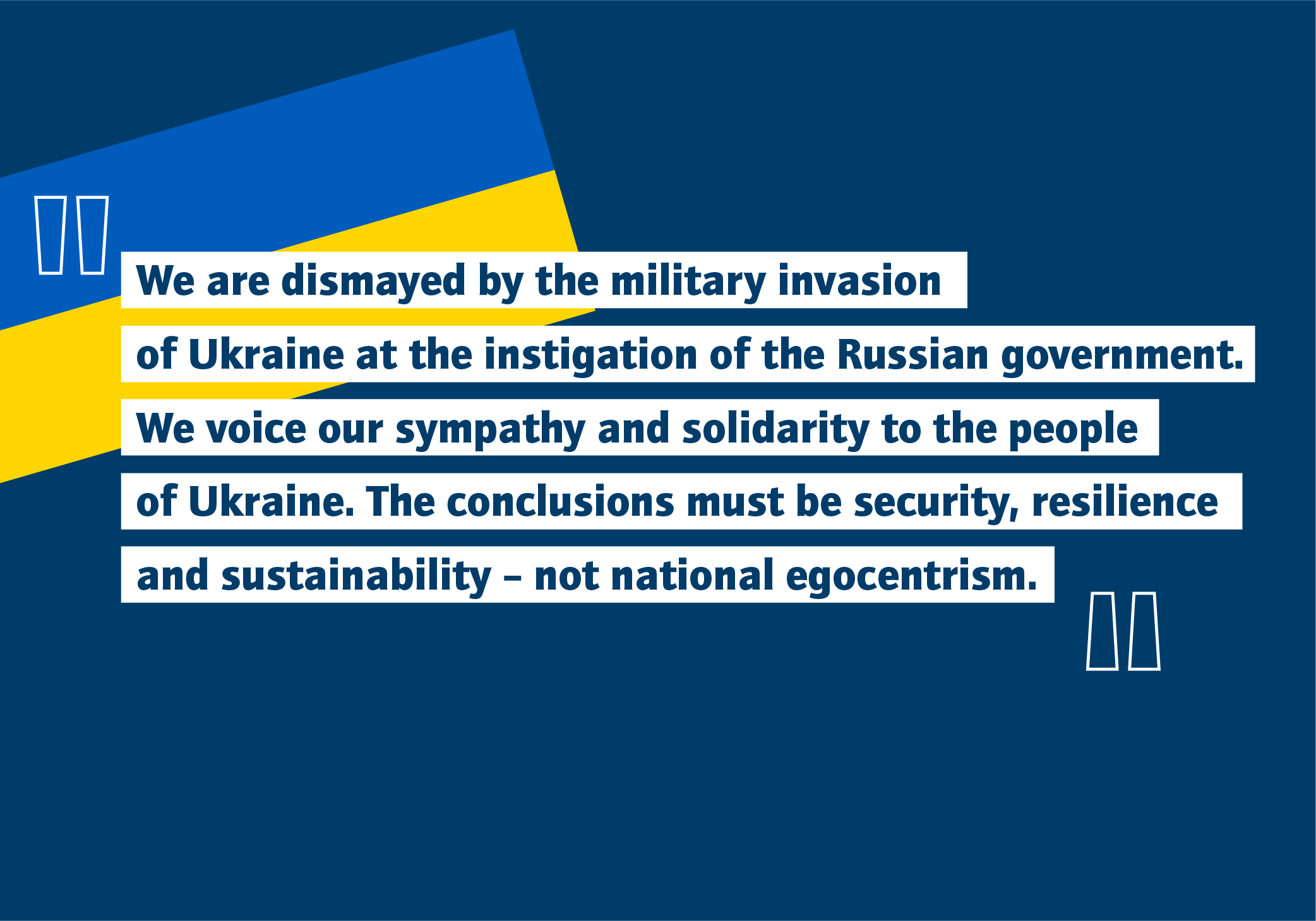Statement of the acatech Executive Board on the attack on Ukraine

Berlin/Munich, 04 March 2022
In a statement published today, the acatech Executive Board condemns the military invasion of Ukraine launched by the Russian government as an attack on the territorial integrity, sovereignty and independence of Ukraine and the fundamental values of the European Union, such as freedom and democracy. “The conclusions to be drawn from the war in Ukraine must be security, resilience and sustainability – not national egocentrism.”
The full statement of 4 March 2022:
Executive Board of acatech – National Academy of Science and Engineering
Consternation, sympathy and solidarity
We are dismayed by the full-scale military invasion into Ukraine launched by the Russian government. We condemn this assault which attacks the territorial integrity, sovereignty and independence of Ukraine and the fundamental values of the European Union’s, such as freedom and democracy. Our thoughts are with the people of Ukraine, and our sympathy and solidarity go out to them.
We are not able to help directly at the moment, but we believe that our work is addressing issues that are relevant to fostering collaboration across national boundaries to help make peace and prosperity possible for all in the future.
Security, resilience and sustainability
The conclusions to be drawn from the war in Ukraine must be security, resilience and sustainability – not national egocentrism.
The war in Ukraine and its direct and indirect consequences require that the geopolitical situation and the demands on Germany and Europe be seen in a new light. The central issues must be dealt with taking into consideration the time dimension – short-term, medium-term, long-term.
In order to translate the above-mentioned overarching aspects into concrete planning and measures, political settings are needed on questions of Germany’s sovereignty and its interaction with regions in Europe and the world beyond the borders of the economic perspective. The balance between national, European and global activities needs to be redefined, not least in order to secure peace and prosperity.
It has become obvious through the war in Ukraine that dependencies in critical areas on individual countries can endanger the system not only partially, but universally. The terms security, resilience and sustainability, which stand for a range of issues, are of particular importance here.
However, this focus must not mean turning away from European or global cooperation. As the challenges of our time, such as climate change, public health and security of supply, require close cross-border cooperation, national egocentrism must be avoided.
Concrete issues to be addressed are, for example:
- Securing the energy supply: Europe-wide coordination of energy policy, taking into account special national circumstances and settings
- Securing the value chains: Analysis of the possibilities of securing the supply chains of strategically relevant products
- Tackling the climate crisis: Continuing the efforts of a sustainable climate and resource policy while taking into account national possibilities
- Establishing a sustainable defence policy: Developing a strategy to determine the measures to safeguard national defence as a member of NATO
It applies equally to all the issues mentioned above that the activities are to be undertaken in close coordination primarily with the partners in Europe and NATO.
In addition to short-term measures, it is particularly important to realise the various activities on the basis of future-oriented technological developments in the long term.
This applies to energy policy (e.g., new technologies for energy transformation), the field of information and communication technology (e.g., chip development and production), the defence (e.g., new technologies for defence engineering), and many further areas.
Of particular importance for handling these issues are data and their secure and targeted application for establishing national, European and international data spaces.
The visions of the future can be manifold. Since it is not possible to determine one for certain in advance, the quotation from Antoine de St. Exupéry should serve as a guide:
„As for the future, your task is not to foresee it, but to enable it.“
In this sense, we are committed to enabling a future in which peace prevails and living standards and prosperity are secured through international cooperation and innovation.
acatech, the National Academy of Science and Engineering of Germany, will assemble a working group consisting of experts from science, industry and society to analyse the various aspects and, in particular, to prepare political decisions.
Jan Wörner, Karl-Heinz Streibich, Manfred Rauhmeier
Management Board of acatech, Statement made on behalf of the Executive Board of acatech
4 March 2022

